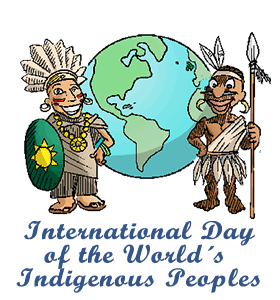

International Day of the World's Indigenous Peoples
Quick Facts - NZ
| HashtagsCompiled on | #IndigenousPeoplesDay, #IndigenousDay |
|---|---|
| 2024 Date | 9 August 2024 |
| 2025 Date | 9 August 2025 |
2024 Holidays & Dates
| New Zealand & Common Holidays | ||
| Misc. & Int'l. Observances | ||
| Christian Holidays |
|
|
|
|
